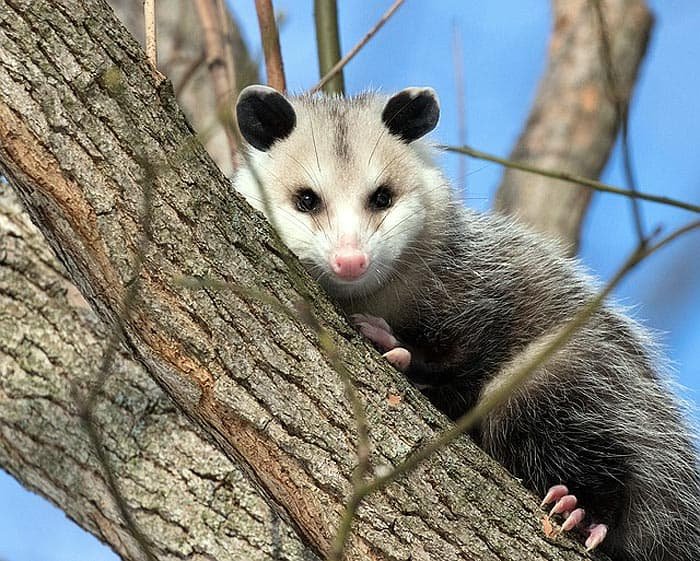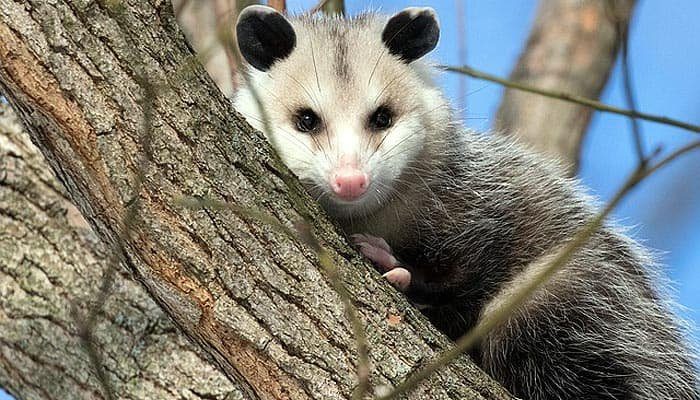
Opossums are fascinating creatures. They’re not just scavengers; they’re opportunists in the animal kingdom. Their diet is as flexible as a rubber band, allowing them to adapt to different environments and situations. Understanding what they eat and how they hunt can give us great insight into their role in our ecosystems. Plus, it’s a real testament to how wildlife can surprise us. So, let’s explore the unique eating habits and hunting techniques of these underappreciated critters!
What Do Opossums Eat?
Opossums are omnivores, which means they have a varied diet. You might be surprised to learn that they’ll eat just about anything they can find. Here’s a quick rundown of their food preferences:
- Fruits and Vegetables: Opossums enjoy apples, berries, and even the occasional corn cob. Think of them as nature’s clean-up crew, munching on fallen fruit.
- Insects: Grubs, beetles, and cockroaches are on the menu. This makes them fantastic for pest control in your garden.
- Small Animals: While they’re not ferocious hunters, they’ll take smaller mammals, birds, and even eggs when they can.
- Human Food: If they get the chance, they might raid your compost bin or trash can, making them infamous for scavenging.
What’s interesting is how their diet helps them survive in different environments. In urban areas, they often dine on discarded food, while in the wild, they roam around for fruits, small critters, and insects. Honestly, their ability to adapt to what’s available is a clever survival strategy that many animals wish they had.
The Opossum’s Foraging Behavior
When it comes to food hunting, opossums are usually nocturnal foragers. They wander around at night, using their keen sense of smell to detect potential meals. Let’s break down how they forage effectively:
- Scavenging: Opossums are natural scavengers, often finding food left behind by other predators. They’re not picky—if it’s edible, they’ll likely eat it.
- Slow and Steady: They don’t rush. Opossums take their time, carefully sniffing around and examining their surroundings for tasty treats.
- Flexible Diet: If one food source isn’t available, they quickly shift to another. This flexibility is key to their survival.
You might be wondering how they manage to stay safe while foraging at night. They’ve got a few tricks up their sleeve! Their ability to “play dead” when threatened is a fascinating defense mechanism, allowing them to avoid predators while they search for food. It’s almost like they’re putting on a dramatic show to avoid confrontation—talk about resourceful!
Hunting Techniques of Opossums
Now, let’s discuss how opossums actually hunt for food. While they aren’t known for their speed or agility, they have clever techniques that help them secure their meals:
- Ambush Hunting: Instead of chasing down their food, opossums often lurk and wait for an unsuspecting insect or small animal to pass by before pouncing.
- Climbing Trees: They’re good climbers and will ascend trees to reach fruits or bird nests. This adds another layer to their hunting repertoire.
- Using Their Hands: Opossums have opposable thumbs on their hind feet, which help them grasp food and climb more effectively!
This hunting approach is a bit different from your typical predator. Opossums aren’t built for speed, so their strategy relies more on patience and stealth. They may not catch food the way a fox would, but they make up for it in cleverness. And their knack for adaptability is really what sets them apart.
How Opossums Contribute to Their Ecosystem
Beyond just eating and foraging, opossums play a significant role in maintaining the health of their environments. But how does their diet and hunting strategy impact the ecosystem? Here’s the scoop:
- Pest Control: By munching on insects and small rodents, opossums help keep pest populations in check. So, the next time you see one in your yard, you might want to thank it for its natural pest control services!
- Seed Dispersal: When they eat fruits, they often help in spreading seeds through their droppings, which promotes plant growth.
- Reduction of Disease: Since opossums are immune to certain diseases (like rabies), they can help minimize the spread of these illnesses in other animal populations.
You might not think about opossums much, but their presence can foster a balanced ecosystem. They’re like the unsung heroes of nature, quietly doing their part while we go about our daily lives.
Common Misconceptions About Opossums
Despite their valuable contributions, opossums often have a bad reputation. Many people view them as pests or even dangerous animals. Let’s debunk some of those myths:
- They’re Vicious: Opossums are generally shy and non-aggressive. They rarely attack unless threatened. Their “playing dead” behavior is often misunderstood as a sign of aggression.
- They Carry Rabies: In reality, opossums have a very low body temperature, making it unlikely for them to carry rabies.
- They’re Dirty: Opossums are actually quite clean. They groom themselves regularly, similar to cats.
It’s easy to misunderstand these creatures, but with a little knowledge, we can appreciate their quirks. They play a vital role in our ecosystems and are far more interesting than many people realize.
So, now that you know about the diet and hunting strategies of the opossum, it’s clear that these unique creatures are much more than just backyard pests. They’re adaptable foragers, clever hunters, and important players in maintaining a healthy ecosystem. Next time you see one, perhaps you’ll think of them as resourceful little survivors doing their part in the world.
Understanding the diet and hunting techniques of opossums helps us appreciate their role in nature. They might not be the most glamorous animals, but they’re definitely deserving of our respect and admiration. If you can, take a moment to observe these fascinating marsupials and share your newfound knowledge—because every creature has its story, and the opossum’s tale is worth telling.

